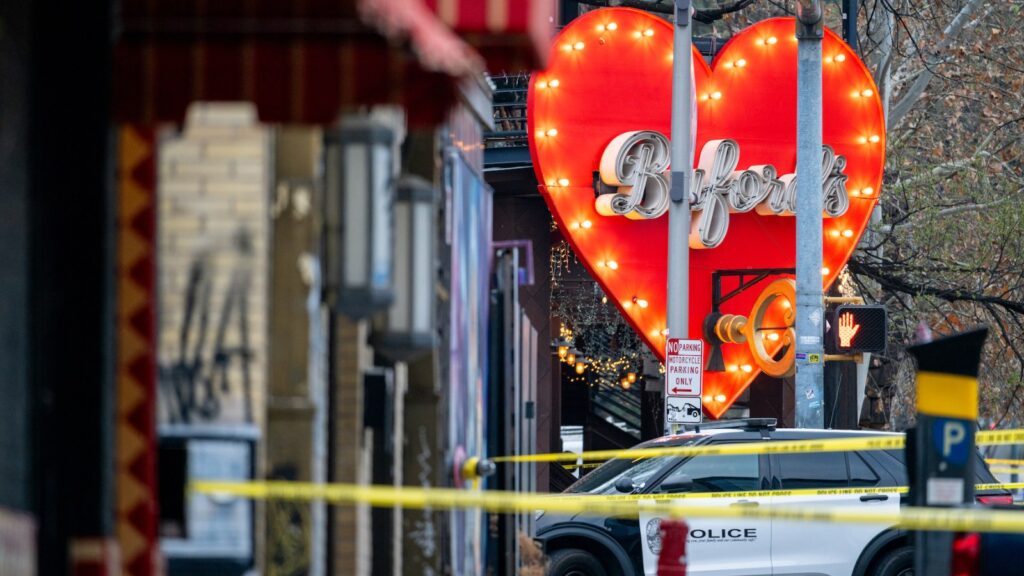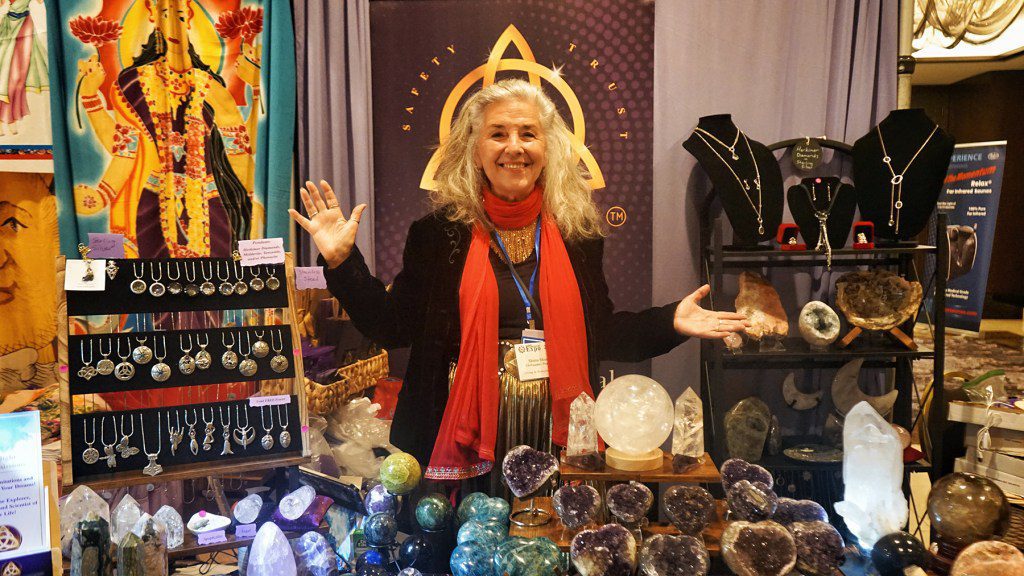Lupe Fiasco Channels Muhammad Ali On the ‘Undisputed’ Soundtrack
Boxing has always had a close relationship with music, whether it’s Joe Frazier singing with his band on The Ed Sullivan Show the night before a championship fight, or Frank Sinatra becoming a ringside mainstay at Madison Square Garden. Nowhere is that bond stronger than with hip-hop, with prizefighters walking out to the ring with their favorite artists, rap verses referencing greats of the sport, and boxers dropping albums of their own.
With the imminent release of Undisputed (out Oct. 11), the hotly anticipated Sweet Science sim from Steel City Interactive, Rolling Stone sat down with Grammy-winning artist Lupe Fiasco to discuss the intersection of boxing and hip-hop, his role in Undisputed, and how the culture of the people who make or star in a game shines through. Rappers and prizefighters are two sides of the same coin, willing to stand toe-to-toe with an opponent, battling from the bottom to the top, and finding inspiration from larger-than-life figures. It’s an overlap more than surface deep, at the heart of both.
Art recognizes art
Lupe Fiasco is a rapper and producer, and his storytelling-infused conscience hip-hop has earned numerous award nominations going back to his debut album 2006’s Lupe Fiasco’s Food & Liquor, including Hip-Hop CD and Lyricist of the Year at the BET Hip-Hop Awards, Outstanding New Artist at the NAACP Image Awards, and a dozen Grammy nominations, including a win for Best Urban/Alternative performance in 2008. He’s also a boxing fan and one of the key musical contributors to Undisputed, placing him squarely at the intersection where these lyrical and martial arts meet.
“Hip-hop culture has always been connected to a certain degree with certain fighters,” Lupe says. “The same kind of hyperbolic figures that come from boxing, dudes from the streets, dudes with style, money, swag, speak to some of those same figures that we have in hip-hop.” He cites Floyd Mayweather, Muhammad Ali, and figures like Jay-Z referencing them. “We always try and find that hyperbolic figure, as I call it, use them as reference points, or use them as kind of motivational points or concepts to tell stories through.”
Lupe Fiasco
Karl Ray*
Lupe grew up in an era where boxing was common on radios and televisions in many households. While the popularity of the sport waned in the early 2000s, Lupe has continued to be fan. He lists Mayweather as a fighter he likes to watch, and ShowBizz the Adult as a boxing content creator he follows. He has his own fans inside the ring, including big names like Sean Porter and Caleb Plant. It’s a mutual appreciation that harkens back to the days of Tupac and Mike Tyson, if not back to the beginning of hip-hop itself if one former governor is to be believed.
“I was doing a concert in Minneapolis,” Lupe says, “Jesse Ventura was there. After my set, he came backstage.” It turns out Ventura is a hip-hop fan after being introduced to it by his son. He asked Lupe if he knew who invented the genre. Lupe teaches hip-hop at MIT and had his ideas about where it started. Ventura’s theory? Muhammad Ali, and as evidence, Venutra himself rapped one of Ali’s speeches from the Sixties.
“The way Jesse Ventura was putting emphasis on certain parts, it sounded very modern,” Lupe says. “It sounded like rap. I’ve heard Muhammad Ali do his little spiels and spins, word flips and stuff. This was a whole verse, and it was about a particular fight.”
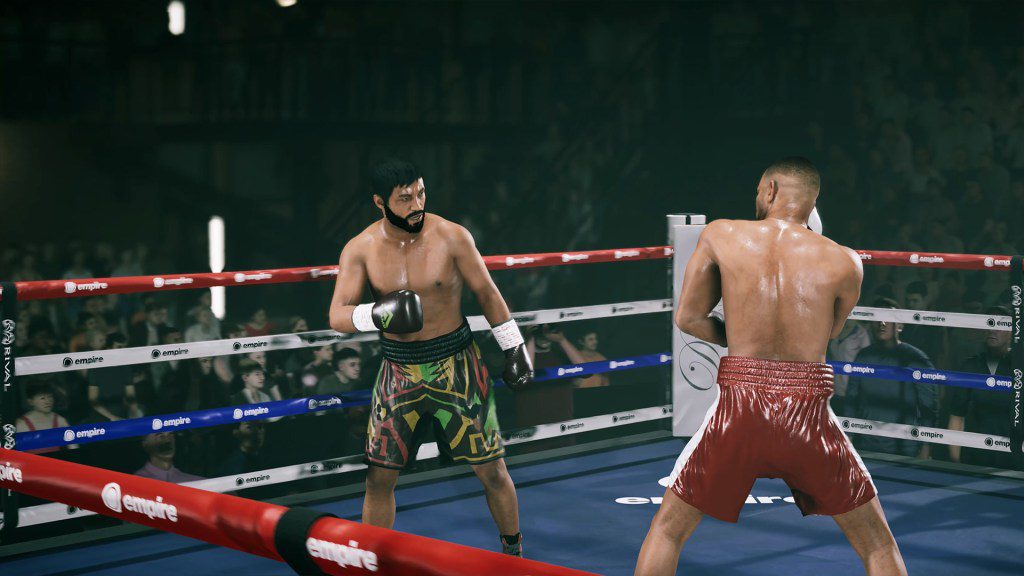
Roy Jones, Jr. in ‘Undisputed’
Steel City Interactive
A unique element of rap among other genres of music is the way it embraces one-on-one battles, a duelist culture that draws parallels with two fighters, toe-to-toe in the ring. “It’s styles and particular techniques within rap that certain people have a mastery of,” he says, “and another person might have a different mastery of. It’s interesting to see styles clash.”
Lupe says hip-hop has always had a battle culture, even if it’s just a contest to see which emcee can get the crowd the loudest. He calls it a framework baked into the roots of hip-hop that is competitive, where someone can actually be the best. Like boxing, there can be a definitive winner, and if something lands just right, it can end in an instant. “That punchline was just dope to the point that even his opponent knew it was dope,” he muses, “and they didn’t have anything that could match the width and depth.”
Building in Culture
Lupe points to Ash Habib, CEO of Steel City Interactive, as a factor impacting how a game like Undisputed finds a place in the relationship between boxing and hip-hop. Habib is a hip-hop fan himself; his culture and that of all the fighters on the Undisputed roster are baked into the soul of the game.
“A lot of that DNA, of what we know of boxing today comes from black fighters who are hip-hop fans,” Lupe says, “or at least absorbed hip-hop culture in some way. It’s pulled into the culture, and it’s getting pulled back out.”
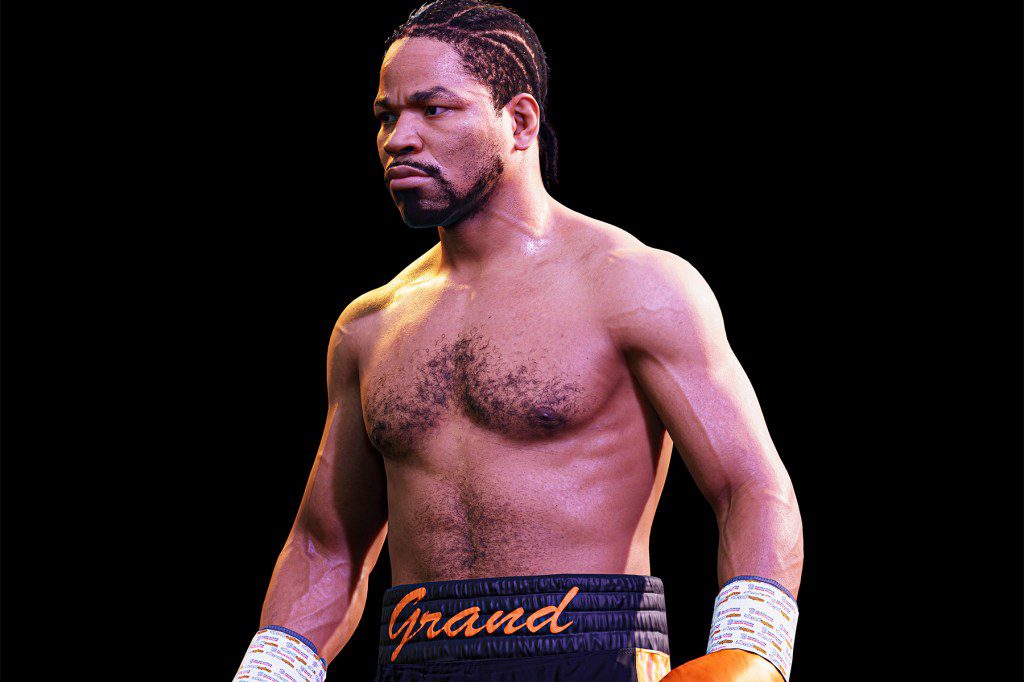
Shawn Porter in ‘Undisputed’
Steel City Interactive
According to Lupe everyone on the roster has their own background, and it’s not all hip-hop. It’s a mosaic of sonic inputs, one in which hip-hop plays a big role.
“You can try, but you can’t separate people’s cultures from what they bring to their sport,” Lupe adds. “Alan Iverson brought hip-hop style with him into basketball, and that became a thing. After that, everybody modeled some of their things from that, wearing braids, the fashion, these different things. They got pulled into hip-hop culture by the nature of their being so synergistic. So I think it’s the same thing as in boxing.”
Lupe’s involvement in the game is no accident, Habib specifically sought him out. There was mutual interest, which evolved into a close collaboration.
“It went from doing a song to investing in the game to coming to some boxing matches, and we all just kind of hit it off.” Now, Lupe considers Habib an ambassador of 1st & 15th, his record label.
The soundtrack mixes well-known artists like Lupe Fiasco and Bugzy Malone, and local artists like Shinobi, a grime artist (think EDM with strong hip-hop influence) who, like Steel City Interactive itself, is from Sheffield in the UK. The soundtrack of sports games often serves as a gateway for artists to reach a new audience. It’s been more than a decade since 2011’s Fight Night Champion, the last high-profile boxing game. Undisputed has an opportunity to fill that space to be that musical gateway for fight fans.
“You haven’t had a boxing game in however long, right?” Lupe asks. “At the time this game was being built, hip-hop was and still is the lingua franca of the generation.“
Lupe Fiasco, Warrior Poet
One of Lupe’s chief contributions to Undisputed is an all-new song, “Pound for Pound.” It’s a hard-hitting track that tells the story of an up-and-coming fighter on the verge of the biggest bout of their life. It’s both motivational and reflective, and it taps into Lupe’s relationship with martial arts.
“If I had to point out, like, what’s our family business, it would be martial arts. We have martial arts schools all over Chicago teaching various forms,” Lupe explains. “A lot of competition, demonstrations, a lot of different weapons, and different pieces of self-defense. My whole life has been immersed in martial arts, competing, teaching, culturally being a part of it.”
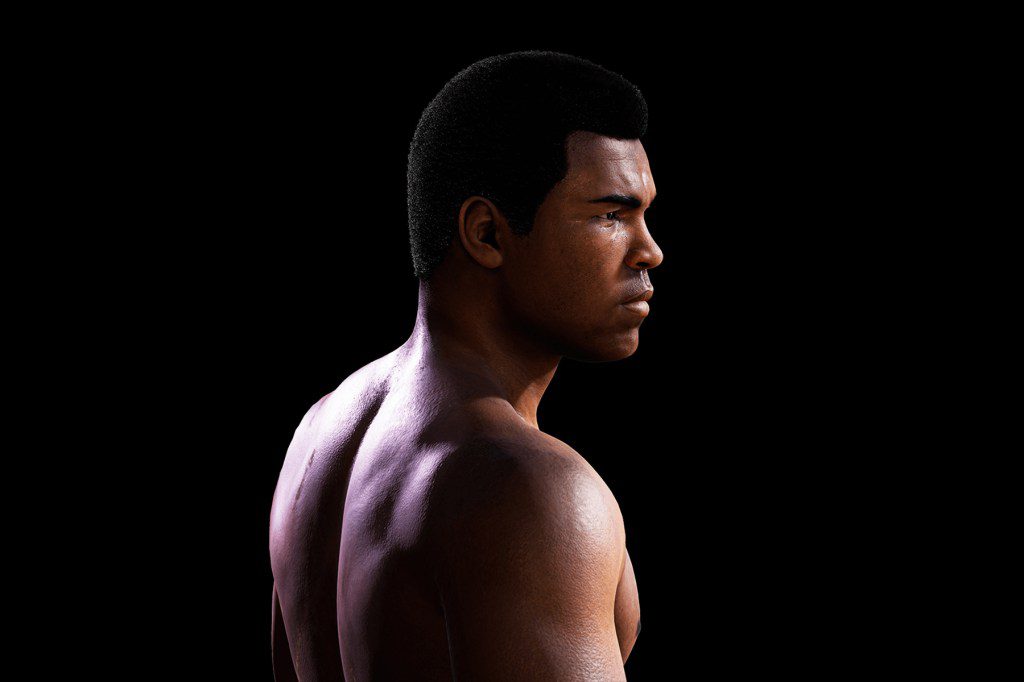
Muhammad Ali in ‘Undisputed’
Steel City Interactive
It’s a unique upbringing, one that comes with some overlap with boxing royalty.
“At one of my dad’s schools, which happened to be in a mosque in Chicago, there’s a basement part of it, and we used to teach in there,” Lupe recalls “Muhammad Ali visited the mosque one time, came down to our karate school, and did a little boxing sparring match with my dad. Muhammad Ali and my dad just doing a little back and forth. It was super surreal.”
Lupe boxes too, though he says he mostly does it for fitness nowadays. While it’s easy to see the warrior culture present in boxing, Lupe’s latest studio album, Samurai, makes it clear that it’s as much a part of hip-hop. It’s filled with references to the battles that artists face, particularly in songs like “Palaces”, and his Amy Winehouse-inspired title track.
Like boxing, hip-hop is a game of attack and response. As Lupe puts it, “You’re trying to push somebody to behave in a certain way or respond in a certain manner. Like in boxing, you’re throwing a jab just to get somebody used to the jab so they respond, and you can hit them with something else.”




